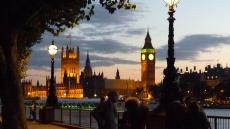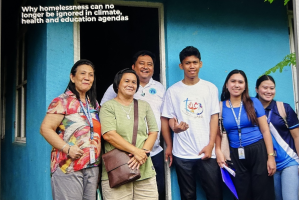Parliamentarians: Cut remittance fees to help poor, defend religious minorities

Houses of Parliament - JS/ICN
Each year, Diaspora workers send three times more money back to their families in the developing world than poor nations receive in overseas aid. In Nigeria alone, $25 billion is remitted, slightly more than the federal budget. Yet, on average, Diaspora workers pay more than 9% of the value of their remittance to the financial institutions performing cash transfers at the stroke of a computer key.
A group of UK Parliamentarians is calling for action to reduce remittance fees, citing evidence that recipients in the developing world use the money efficiently, starting small businesses and buying property.
The House of Lords Select Committee on International Relations and Defence also calls for a two-year debt standstill in the wake of the Covid-19 pandemic, as developing countries see their economies shrink dramatically.
Among other proposals, such as a less humiliating UK visa process, the committee condemns the government's plan to merge the Department for International Development with the Foreign Office. The Lords express concern that trade will become the UK's priority, rather than promoting economic development and welfare.
The report says that Brexit opens new opportunities for creating a fairer export environment for African producers, but the Lords express surprise that the government appears to have done nothing to prepare for trade with Africa, post-Brexit. Sending remittances could also become less expensive when UK financial institutions do not have to comply with the EU Payment Services Directive, although there is no indication that money transfer companies will reduce their fees accordingly without pressure from the government.
The committee examines the persecution of Christians and religious minorities such as the Uighers in China and the Yezidi in Iraq, noting that the UK must demand that Nigeria and Pakistan, the top recipients of UK aid, must do more to protect their Christian communities.
The report catalogues the attacks on Christians by Boko Haram and Fulani militias in Nigeria, noting the inadequate response of the authorities. It is clear, however, that the Lords were divided on whether to highlight the religious jihadist motivations of both Boko Haram and the Fulani militias, despite evidence provided by human rights groups. The Foreign Office continues to stress the role of climate change and poverty in the increasing violence directed at Nigerian Christians.
In a wide-ranging study of the UK's security and diplomatic priorities, packed with useful data, the Lords warn that Covid-19 could reverse years of progress made in the developing world. They call for stricter action to stop tax avoidance and evasion by multinational companies, and the promotion of government accountability and inter-Africa trade.
Finally, the report highlights the areas of concern - the Sahel, Cameroon, and Somalia - where conflict is increasing, causing human misery and insecurity, with geopolitical implications.
LINK
Read the full report here: https://publications.parliament.uk/pa/ld5801/ldselect/ldintrel/88/88.pdf


















